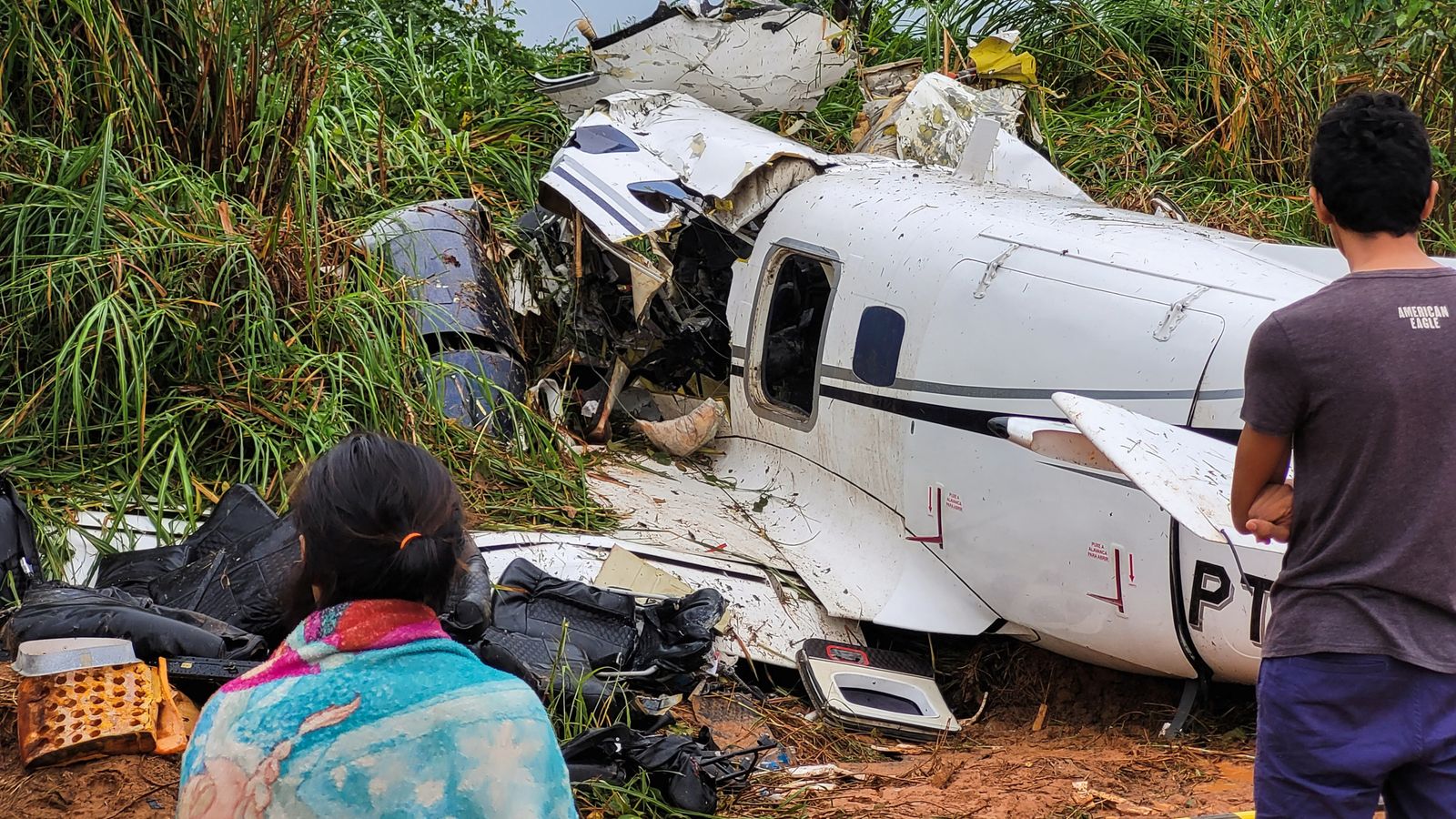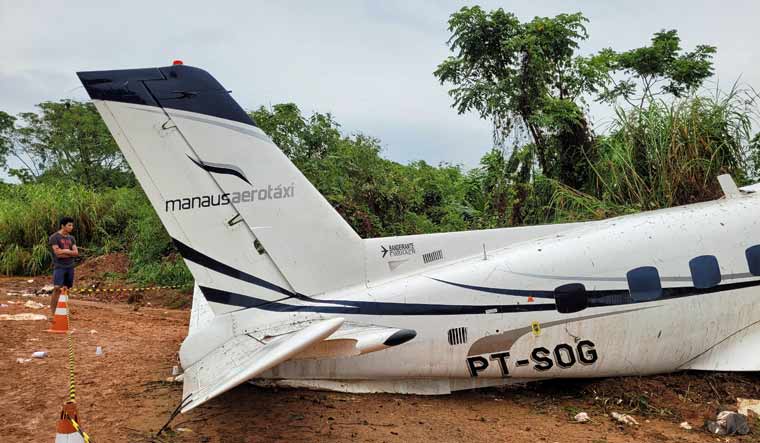Investigation and Response: Brazil Plane Crash 2024

The crash of the Brazilian aircraft in 2024 triggered a swift and multifaceted response, involving emergency services, rescue efforts, and a comprehensive investigation to determine the cause of the tragedy. The immediate focus was on saving lives, while the long-term goal was to understand the events leading to the crash and prevent similar incidents in the future.
Emergency Response and Rescue Efforts
Following the crash, emergency services, including firefighters, paramedics, and police, rushed to the scene. Their primary objective was to provide medical assistance to survivors and recover the bodies of those who perished. The rescue operation was challenging due to the remote location of the crash site, but rescuers worked tirelessly to reach the victims and provide them with the necessary care. The response was a collaborative effort involving multiple agencies and individuals, demonstrating the resilience and dedication of the Brazilian community in times of crisis.
Investigation into the Cause of the Crash
A thorough investigation was initiated to determine the cause of the crash, involving a team of experts from various agencies, including the Brazilian National Civil Aviation Agency (ANAC), the Brazilian Air Force (FAB), and the National Institute of Aeronautics and Space Research (INPE). The investigation involved examining the wreckage, analyzing flight data recorders (black boxes), interviewing witnesses, and reviewing maintenance records. The investigators aimed to identify any contributing factors, such as mechanical failure, pilot error, or environmental conditions, that may have led to the crash.
Key Agencies Involved in the Investigation
- ANAC (Brazilian National Civil Aviation Agency): ANAC is the primary aviation regulatory body in Brazil, responsible for overseeing all aspects of civil aviation, including aircraft safety and accident investigations. ANAC played a crucial role in the investigation, providing technical expertise and coordinating with other agencies.
- FAB (Brazilian Air Force): The FAB is responsible for military aviation in Brazil, but also participates in accident investigations involving military aircraft. The FAB’s expertise in aircraft maintenance and flight operations contributed significantly to the investigation.
- INPE (National Institute of Aeronautics and Space Research): INPE is a Brazilian government agency responsible for research and development in space technology, including aviation safety. INPE provided its expertise in analyzing data related to weather conditions and aircraft performance.
Process and Timeline of the Investigation
The investigation into the crash followed a systematic process, involving multiple stages, including:
- Initial Response: Immediately after the crash, investigators secured the crash site and began collecting evidence, such as wreckage and flight data recorders.
- Evidence Collection and Analysis: Investigators meticulously examined the wreckage, analyzing the damage and searching for clues about the cause of the crash. They also analyzed the flight data recorders to reconstruct the aircraft’s final moments.
- Witness Interviews: Investigators interviewed witnesses, including passengers, crew members, and air traffic controllers, to gather information about the events leading up to the crash.
- Data Analysis: Investigators analyzed data from various sources, including weather reports, maintenance records, and aircraft performance data, to identify any potential contributing factors.
- Report Publication: After a comprehensive investigation, investigators compiled their findings and published a detailed report, outlining the cause of the crash and any recommendations for preventing similar incidents in the future.
Impact and Aftermath

The Brazil plane crash in 2024 had a devastating impact on the families of the victims, the wider community, and the aviation industry. The crash triggered a wave of grief and sorrow, raising questions about safety measures and prompting investigations into the causes of the accident.
Impact on Families and the Community
The crash had a profound impact on the families of the victims. Many families were left shattered, grappling with the loss of loved ones. The grief and trauma experienced by these families were immense, and the long-term effects of this loss are likely to be significant. Beyond the immediate families, the crash also affected the wider community. The accident sparked a sense of collective grief and shock, reminding people of the fragility of life and the potential for tragedy. Many people felt a sense of vulnerability and anxiety, particularly those who had family members or friends who traveled frequently by air.
Economic and Social Consequences, Brazil plane crash 2024
The crash had significant economic and social consequences. The loss of life and the destruction of the aircraft resulted in financial losses for the airline, insurance companies, and other businesses involved. The crash also disrupted travel and transportation, leading to delays and cancellations of flights. Additionally, the crash may have had a negative impact on tourism and the local economy. The crash could lead to a decrease in passenger confidence and travel demand, particularly in the region where the accident occurred.
Impact on the Aviation Industry in Brazil
The crash had a major impact on the aviation industry in Brazil. The accident raised concerns about safety standards and procedures, prompting the Brazilian aviation authorities to conduct a thorough investigation. The findings of the investigation are likely to lead to changes in regulations, safety protocols, and training requirements for pilots and air traffic controllers. The crash may also lead to increased scrutiny of the airline involved, including its maintenance procedures and safety record. The impact on the aviation industry is likely to be long-lasting, with potential consequences for both safety and public perception.
Reactions of the Brazilian Government and Aviation Authorities
The Brazilian government and aviation authorities reacted swiftly to the crash. The government expressed condolences to the families of the victims and promised a full investigation into the cause of the accident. The aviation authorities launched an investigation, involving experts from Brazil and other countries. The authorities also implemented temporary safety measures, including enhanced inspections and reviews of aircraft and operations. The government’s response to the crash was characterized by a commitment to transparency and accountability.
Brazil plane crash 2024 – The tragedy of the Brazil plane crash in 2024 has ignited a wave of public scrutiny, prompting questions about safety regulations and accountability. Amidst the ensuing chaos, the timing of the presidential debate, presidential debate time , has become a focal point, with candidates vying to capitalize on the tragedy for political gain.
The crash serves as a stark reminder of the fragility of life and the need for decisive action, casting a long shadow over the upcoming election.
The Brazilian plane crash of 2024, a tragedy that has sent shockwaves through the nation, raises questions about the country’s aviation safety standards. Meanwhile, the political landscape remains volatile, with the upcoming presidential election fueling intense debate. One question that’s grabbing headlines is who is moderating the next presidential debate , as the moderator’s influence on the tone and direction of the debate could have a significant impact on the outcome of the election.
As the country grapples with the aftermath of the crash, the political discourse continues to intensify, highlighting the complexities of navigating tragedy and political ambition simultaneously.
